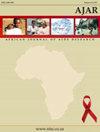Parental decision-making in infant and child male circumcision: a case study in two townships in Gauteng, South Africa
IF 1.1
4区 医学
Q4 PUBLIC, ENVIRONMENTAL & OCCUPATIONAL HEALTH
引用次数: 1
Abstract
Parental decision-making in infant and child male circumcision is influenced by complex, interrelated factors on many levels. Several studies have highlighted reasons for the acceptance and non-acceptance of child male circumcision. This study investigates the factors that influence parental decision-making in this matter and proposes a parental decision-making framework. The study was conducted in the townships of Diepsloot and Diepkloof in Gauteng, South Africa, using 48 in-depth interviews with parents, grandparents and uncles of the boys, as well as government officials and members of civil society as part of an explorative case study. Purposive and snowball sampling were used to select the participants. Thematic analysis was used to analyse the data by applying the conceptual framework of Bronfenbrenner’s ecological systems theory. Three main themes emerged from the data: microsystem factors related to health and hygiene, the father’s circumcision status, cultural expectations, pain, the child’s autonomy and the extended family; mesosystem factors related to early childhood development centres; and exosystem factors related to circumcision policies and financial considerations.婴儿和儿童男性包皮环切术中的父母决策:南非豪登省两个乡镇的案例研究
父母在婴儿和儿童男性包皮环切术中的决策在许多层面上受到复杂的、相互关联的因素的影响。几项研究强调了接受和不接受儿童男性包皮环切术的原因。本研究调查了影响父母在这方面决策的因素,并提出了父母决策框架。这项研究在南非豪登省的Diepsloot和Diepkloof镇进行,对男孩的父母、祖父母和叔叔、政府官员和民间社会成员进行了48次深入采访,作为探索性案例研究的一部分。采用目的抽样和滚雪球抽样的方法来选择参与者。运用Bronfenbrenner生态系统理论的概念框架,采用专题分析法对数据进行分析。数据中出现了三个主要主题:与健康和卫生相关的微观系统因素、父亲的包皮环切状况、文化期望、疼痛、孩子的自主性和大家庭;与幼儿发展中心有关的中系统因素;以及与包皮环切术政策和财务考虑相关的外系统因素。
本文章由计算机程序翻译,如有差异,请以英文原文为准。
求助全文
约1分钟内获得全文
求助全文
来源期刊

Ajar-African Journal of Aids Research
医学-公共卫生、环境卫生与职业卫生
CiteScore
1.80
自引率
8.30%
发文量
38
审稿时长
>12 weeks
期刊介绍:
African Journal of AIDS Research (AJAR) is a peer-reviewed research journal publishing papers that make an original contribution to the understanding of social dimensions of HIV/AIDS in African contexts. AJAR includes articles from, amongst others, the disciplines of sociology, demography, epidemiology, social geography, economics, psychology, anthropology, philosophy, health communication, media, cultural studies, public health, education, nursing science and social work. Papers relating to impact, care, prevention and social planning, as well as articles covering social theory and the history and politics of HIV/AIDS, will be considered for publication.
 求助内容:
求助内容: 应助结果提醒方式:
应助结果提醒方式:


